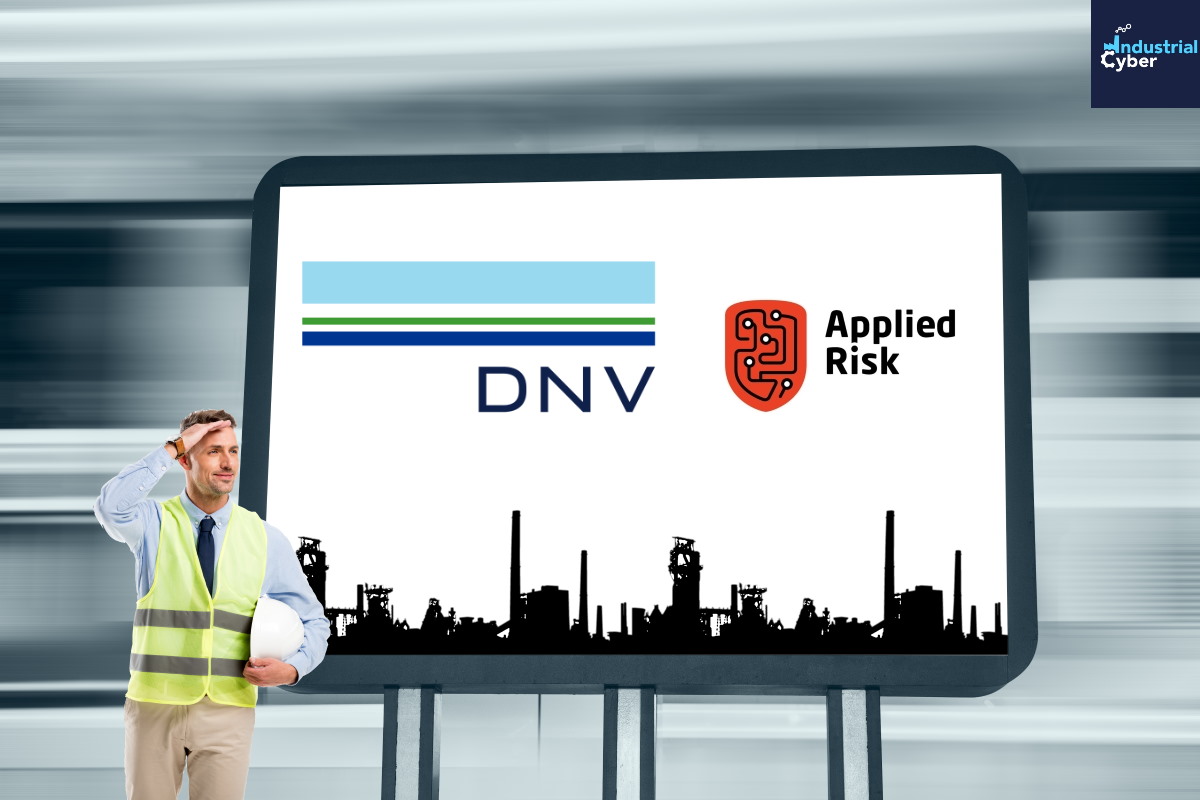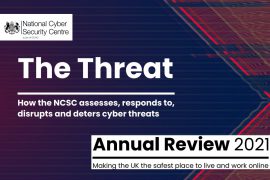DNV joins forces with Applied Risk to build cutting-edge industrial cyber security business

Assurance and risk management company DNV announced on Wednesday that it has joined forces with industrial cyber security company Applied Risk to help customers across a range of industrial sectors identify their cyber risks, build a powerful force of defense against threats, recover from attacks and win stakeholder trust and support. The industrial sectors include energy, maritime, manufacturing, chemicals, utilities, and healthcare.

Liv Hovem, CEO, the Accelerator, DNV
By joining forces, “we believe that DNV’s Cyber Security business and Applied Risk will be able to build an industrial cyber security practice that has greater impact for our customers than the sum of our parts,” Liv Hovem, CEO, the Accelerator, DNV, told Industrial Cyber. “As one team, we will bring greater muscle to our customers’ cyber security projects, combine the strengths of Applied Risk and DNV with significant investments in security research and innovation to build and grow a cutting-edge industrial cyber security business.”
The Accelerator is DNV’s new business area fueling exponential growth. Recruiting new expertise into the combined team “will feature heavily in our future joint plans as we aim to build the world’s largest industrial cyber security practice together,” Hovem added.
The details of the transaction and financial performance are confidential. “What we can say, however, is that bringing together Applied Risk and DNV’s teams of industrial cyber security experts is the first step in our plan to build a cyber security powerhouse through acquisitions and partnerships with top-tier cyber security firms around the world. We will also welcome more talent into the business as we grow,” according to Hovem.
Set up in 2012, Applied Risk is headquartered in Amsterdam and has a team of engineering and cyber security professionals working across Europe, the Middle East, and Asia, advancing capabilities in industries including energy, maritime, pharmaceuticals, transport, mining, utilities, and manufacturing.
Applied Risk’s experts will join forces with DNV’s cyber security specialists, who work with governments, corporations, and industrial operators to keep projects and operations secure. DNV provides real-world cyber security expertise to complex infrastructure projects, that help customers identify their cyber risks, build a powerful force of defense against threats, and recover from attacks.
DNV’s Cyber Security business and Applied Risk will operate under the DNV brand after a period of integration, Hovem said. A combined leadership team from both companies will be tasked with scaling a merged cyber security business with ambitions for significant growth by the end of 2025. Since the two companies are joining forces for growth, no parts of the two companies’ businesses will be closed as a result of this acquisition, she added.
“DNV and Applied Risk are joining forces for growth, and the experts in both the Applied Risk team and the DNV Cyber Security business are extremely important to the success of the industrial cyber security powerhouse that we will build together. Redundancies are not on the cards,” according to Hovem.
“The services that both organizations offer to our customers are very similar, however Applied Risk will enhance DNV’s portfolio in certain areas such as training,” Hover said. “For example, Applied Risk’s TactICS training is a comprehensive approach to stimulate cyber security awareness and skills for teams interacting with operational technology,” she added.
Over the coming years, DNV and Applied Risk aim to build an industrial cyber security powerhouse together. “This will involve us building a broader portfolio of industrial cyber security solutions than the services that both companies currently provide – this includes a comprehensive threat detection and response service for critical industrial infrastructure,” Hovem added.
“DNV and Applied Risk share a common vision of safeguarding industrial assets from the growing volume and complexity of cyber-attacks,” Jalal Bouhdada, CEO of Applied Risk, said in a media statement. “This partnership brings together two highly respected organizations in industrial assurance and cyber security solutions. We will combine the strengths of Applied Risk and DNV with significant investments in security research and innovation to build and grow a cutting-edge industrial cyber security business that helps our customers outpace new threats posed by cyber criminals,”
Industrial assets such as windfarms, oil and gas infrastructure, ships, manufacturing facilities, and medical equipment, are now at higher risk of new forms of cyber-attack as their control systems become increasingly connected, Remi Eriksen, group president and CEO, DNV said. “By joining forces with Applied Risk, we aim to build an industrial cyber security powerhouse to support our customers in managing these emerging risks,” he added.
“Bringing together Applied Risk and DNV’s impressive teams of industrial cyber security experts is the first step in our plan to build a cyber security powerhouse through acquisitions and partnerships with top-tier cyber security firms around the world,” Hovem said. “We will also welcome more talent into the business as we grow, offering the opportunity to work on some of the world’s most advanced and complex cyber security projects alongside DNV’s global team of nearly 12,000 industrial domain experts.”
The timing of DNV joining forces with Applied Risk comes at a time when nine out of ten organizations experienced at least one intrusion in the past year and 63 percent had three or more intrusions, according to the ‘2021 State of Operational Technology and Cybersecurity Report’ from Fortinet. The most common intrusions were malware at 57 percent and phishing at 58 percent.
The industrial cybersecurity sector has been witnessing growth, and the importance of cybersecurity to critical infrastructure is not a new concept. Recent cyberattacks are increasing awareness for what much of the OT community has known for a long time.
Last month, industrial cybersecurity company Dragos raised US$200 million in Series D funding at a valuation of $1.7 billion, reflecting increasing demand for OT cyber security techniques and solutions. This investment comes as industrial cyberattacks continue to rise highlighting the fact that OT cyber security is different and needs a different approach.
Before that, another industrial cybersecurity company aDolus Technology announced that it has raised $2.5 million in its latest funding round, which the company will use to pursue an aggressive go-to-market strategy, timed to meet the sharply growing demand for supply chain security solutions, particularly in critical industries.










